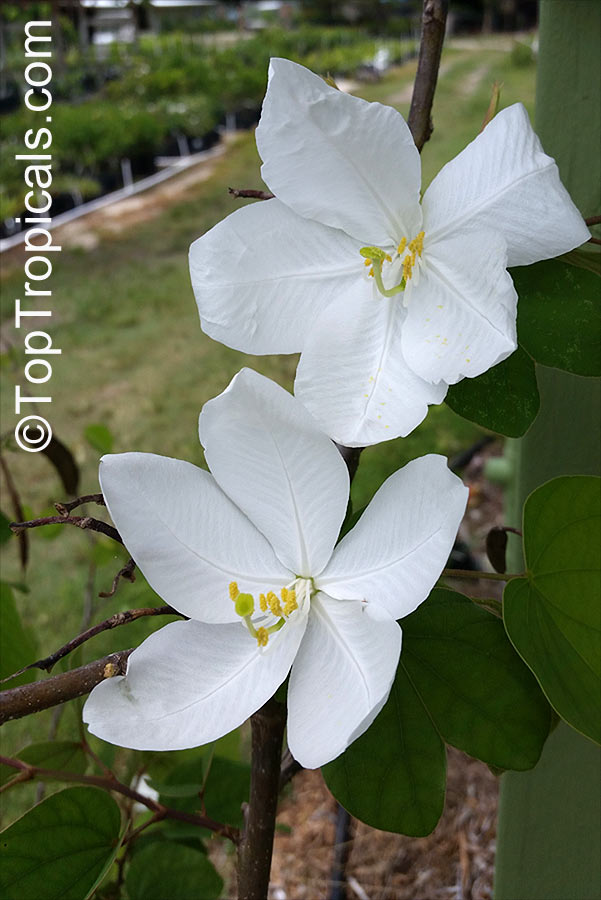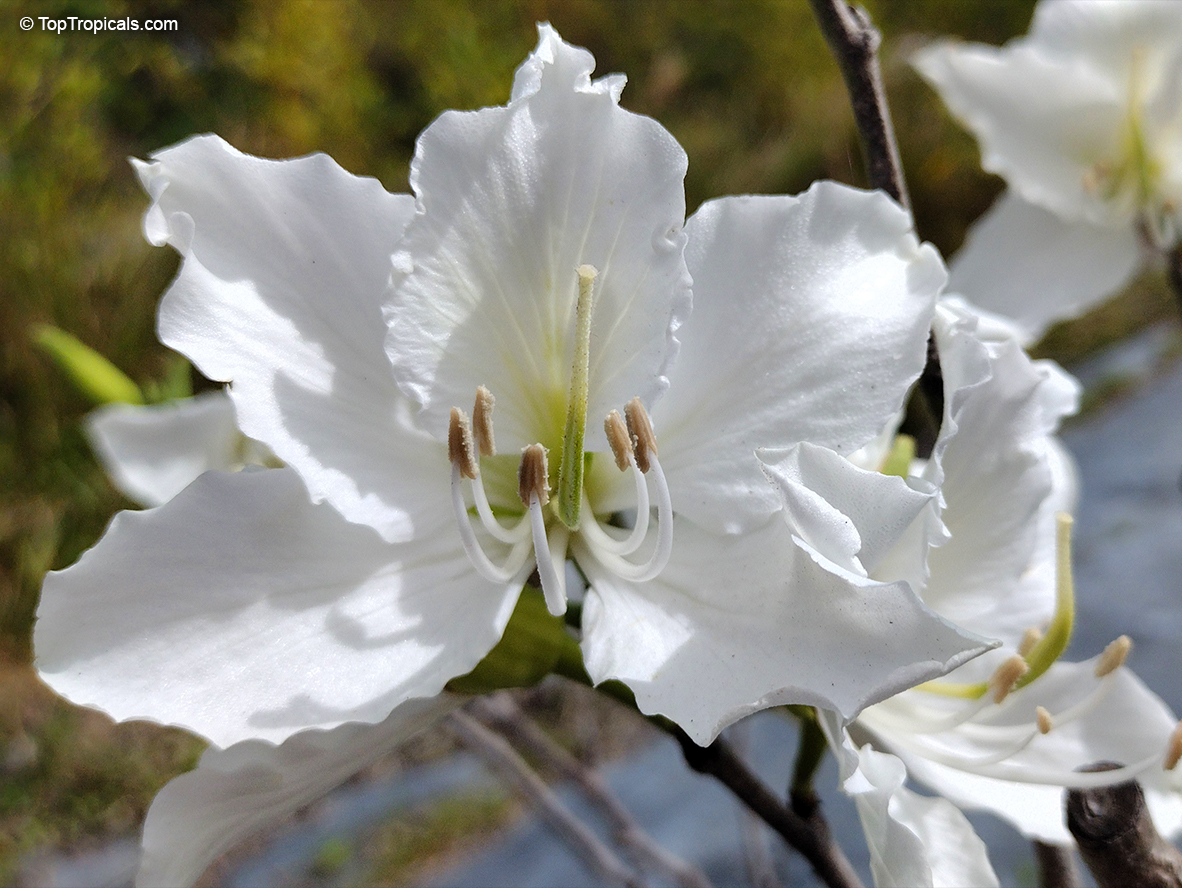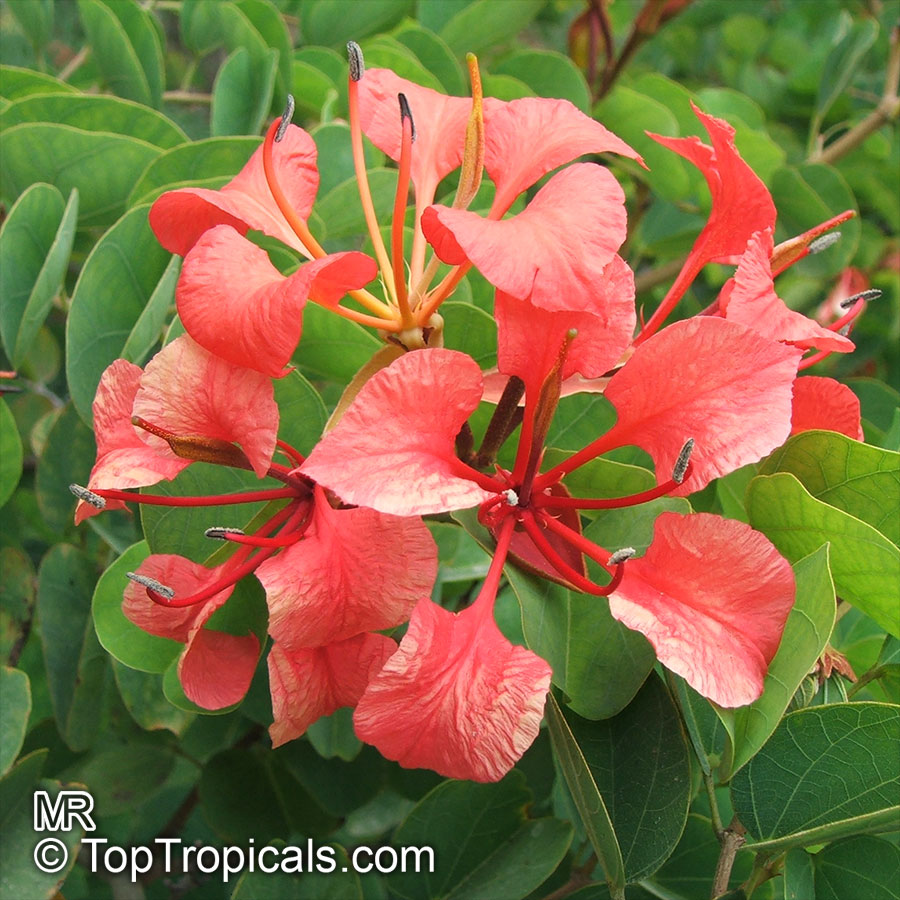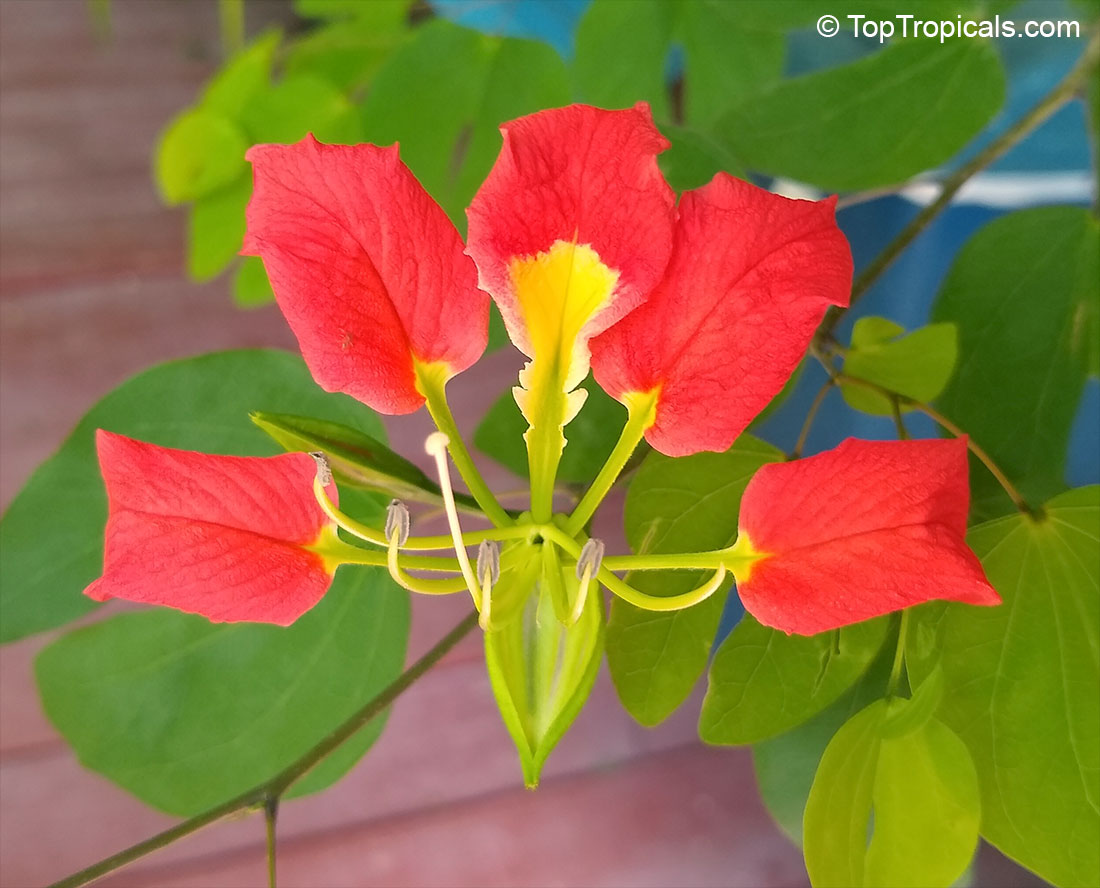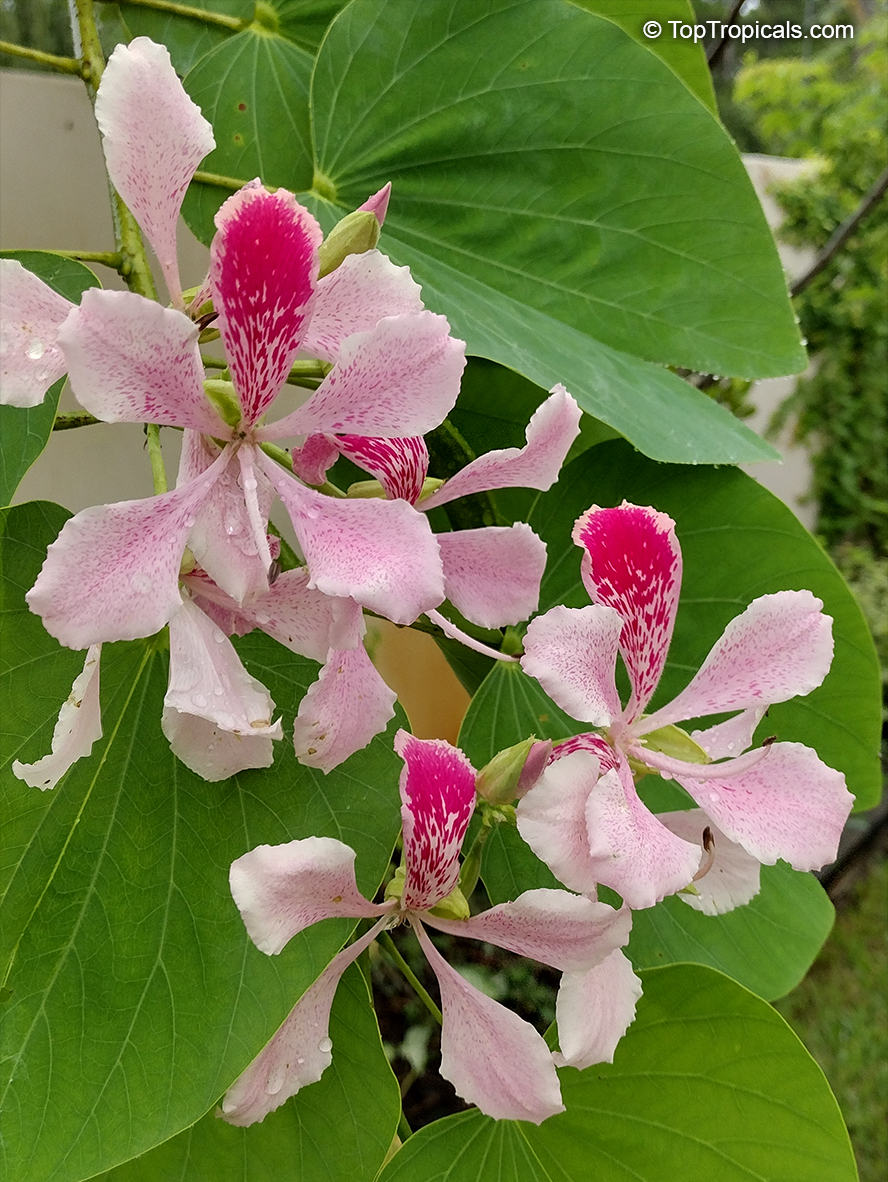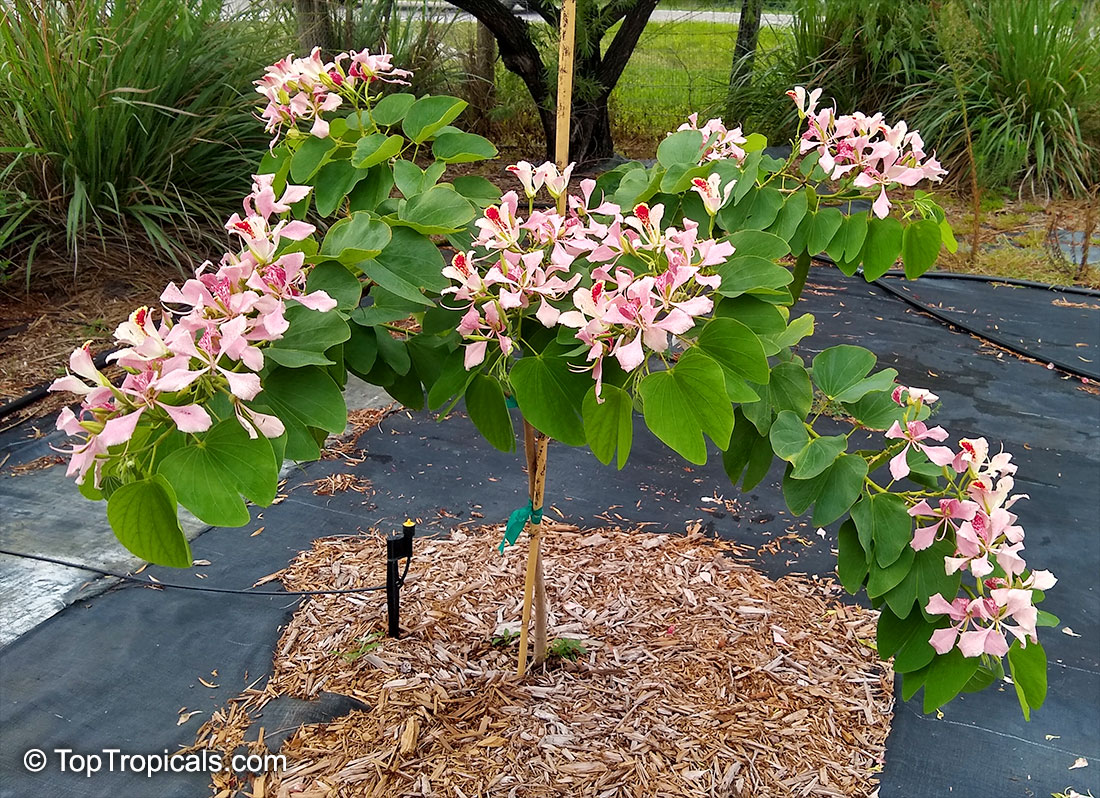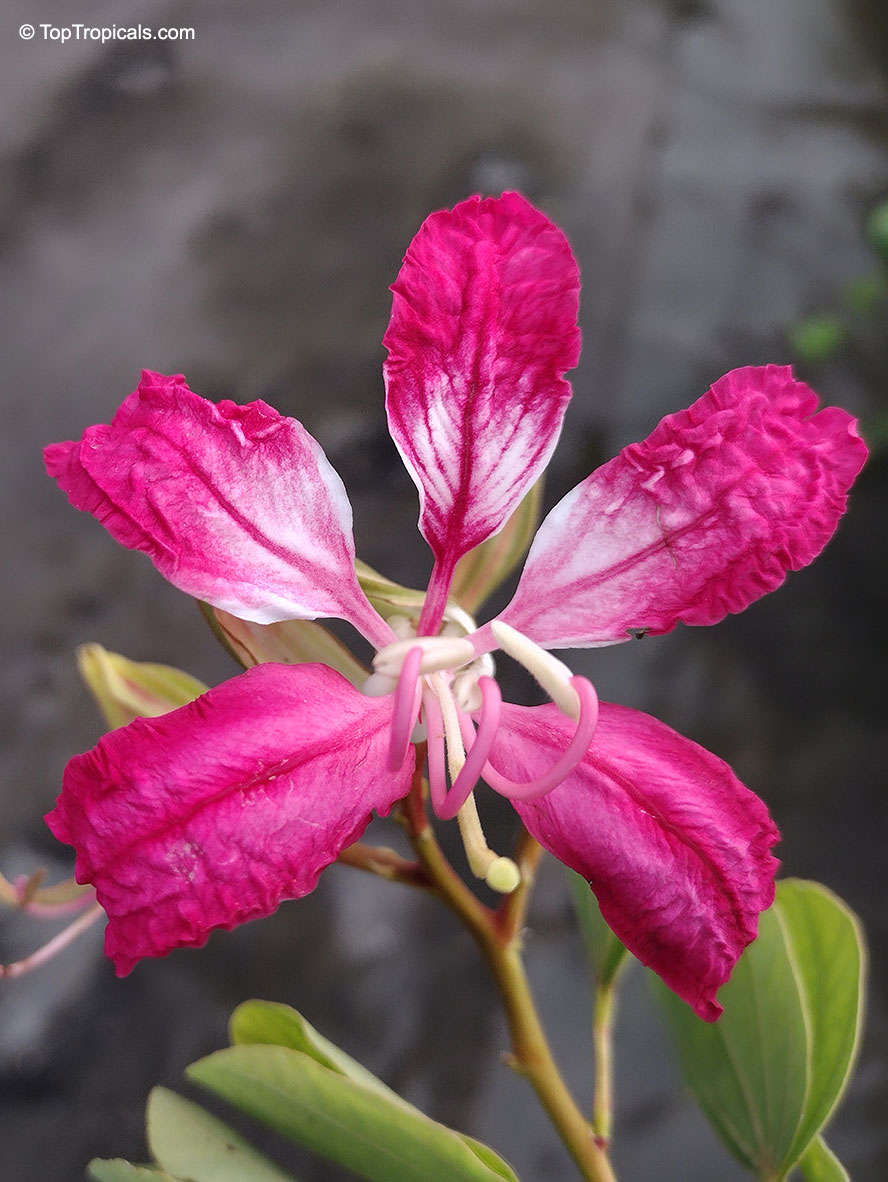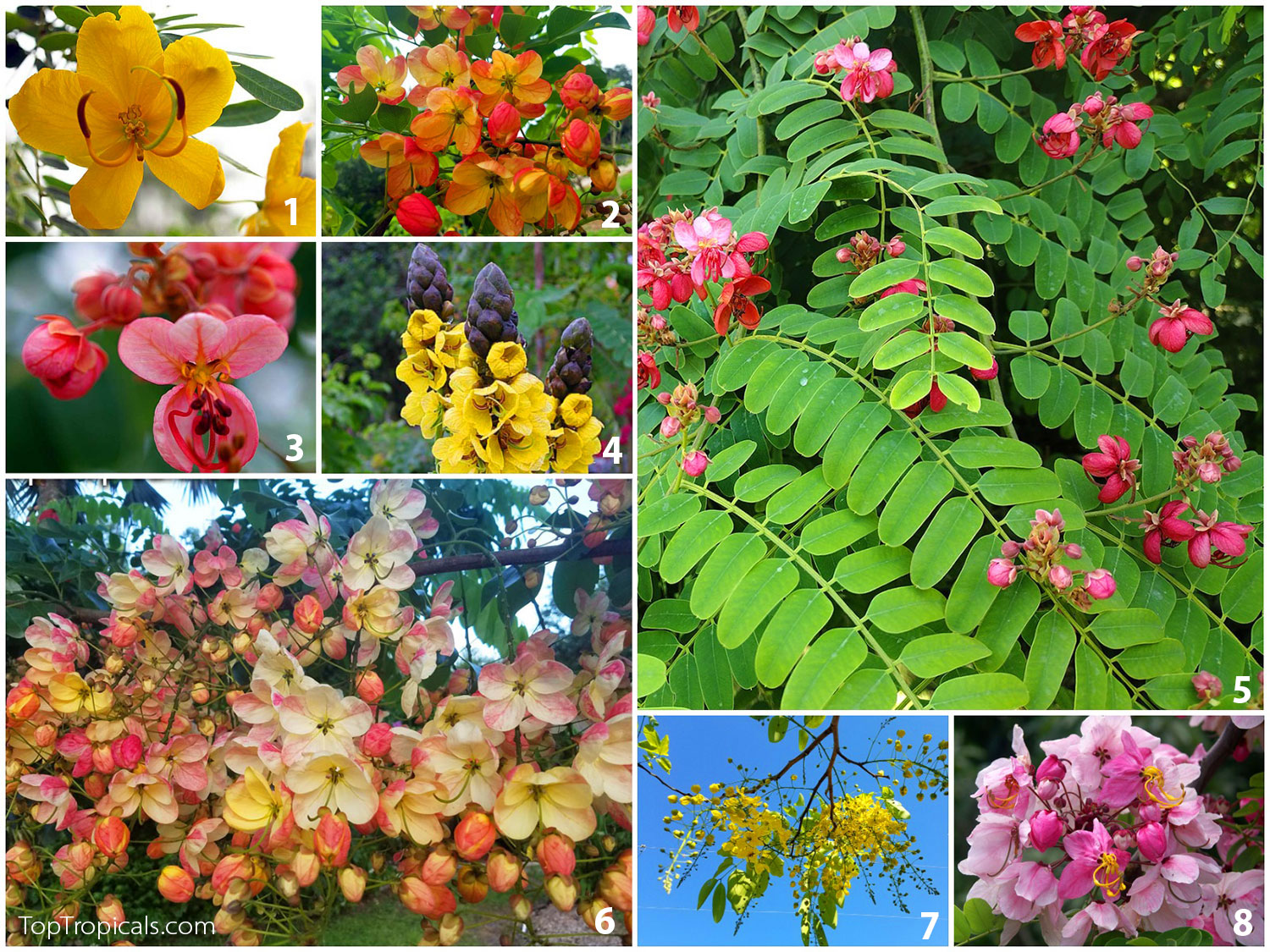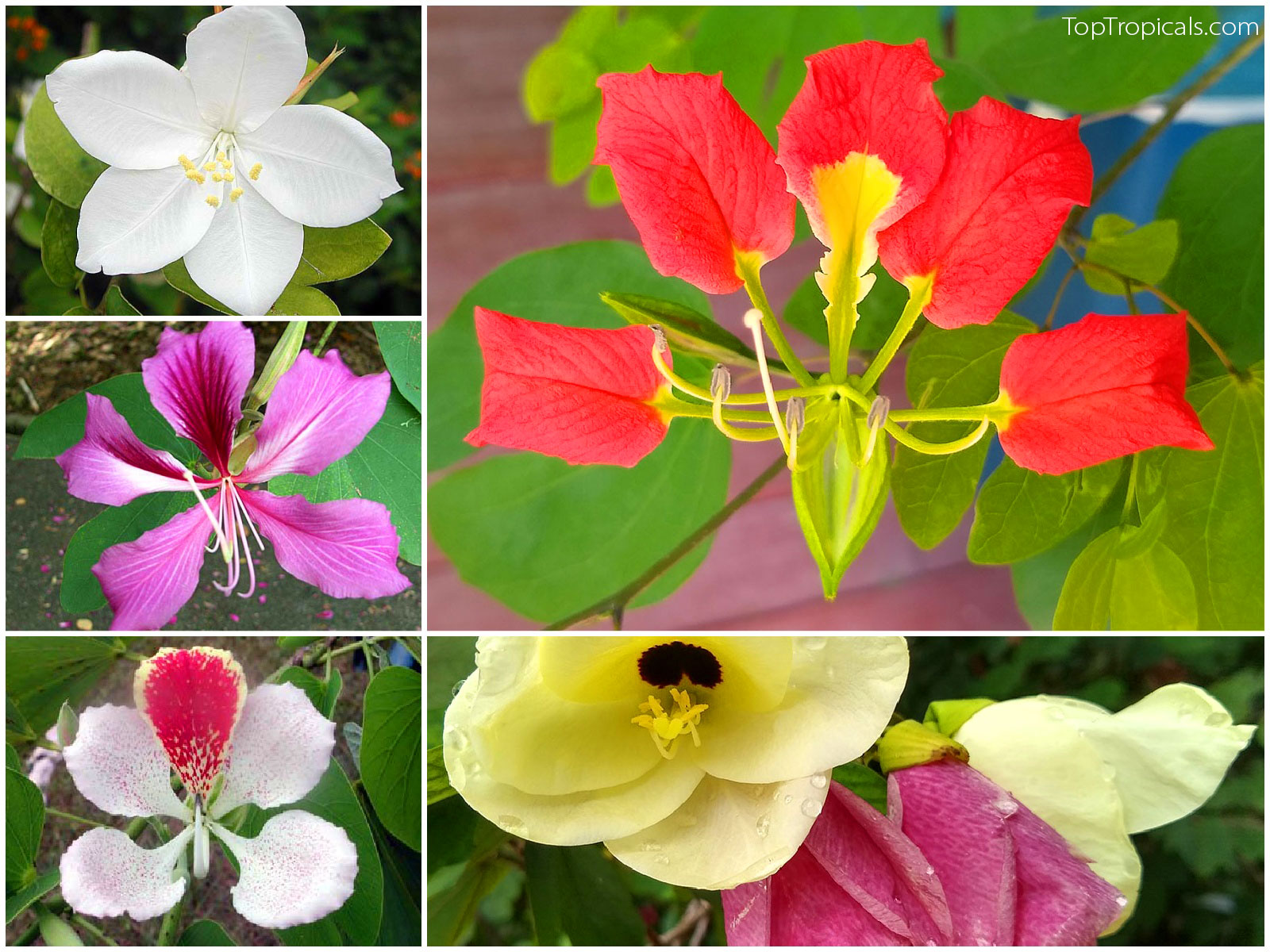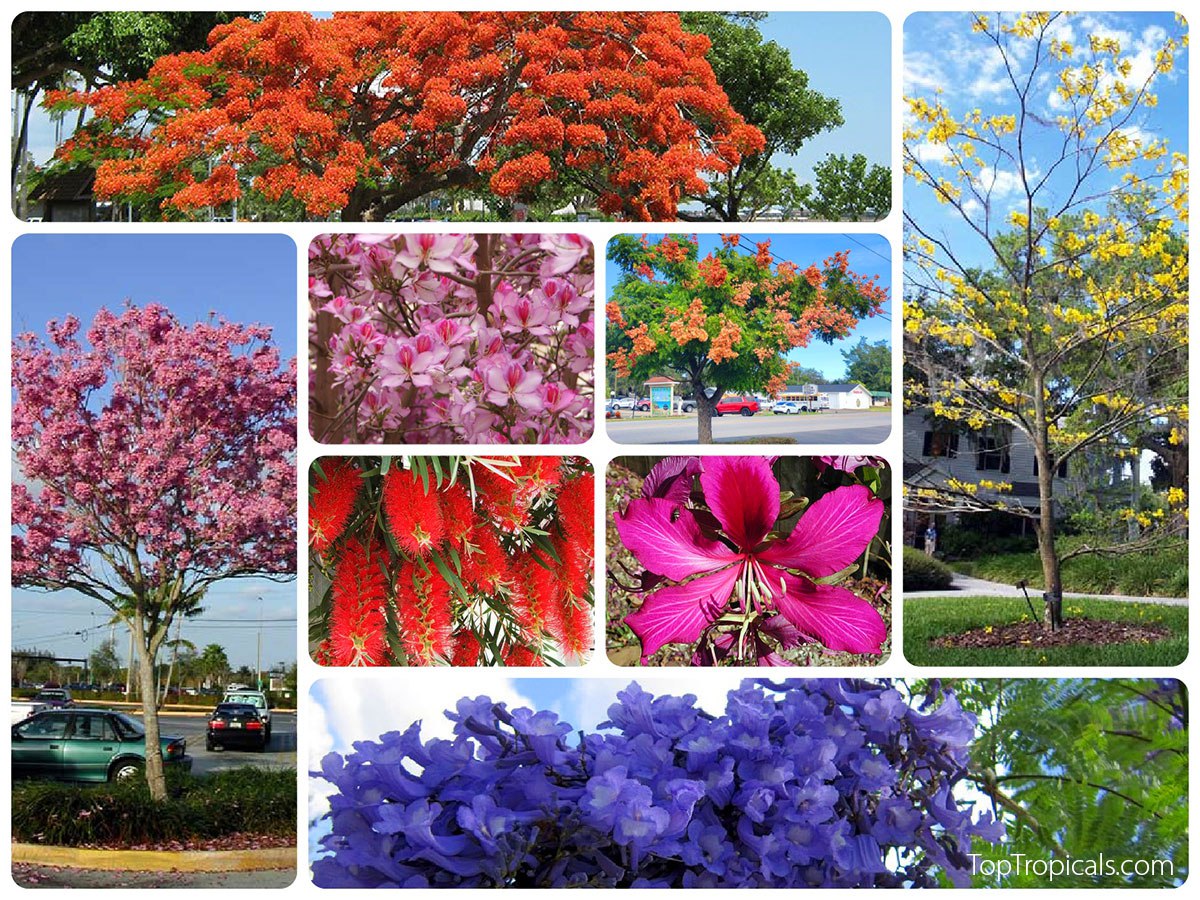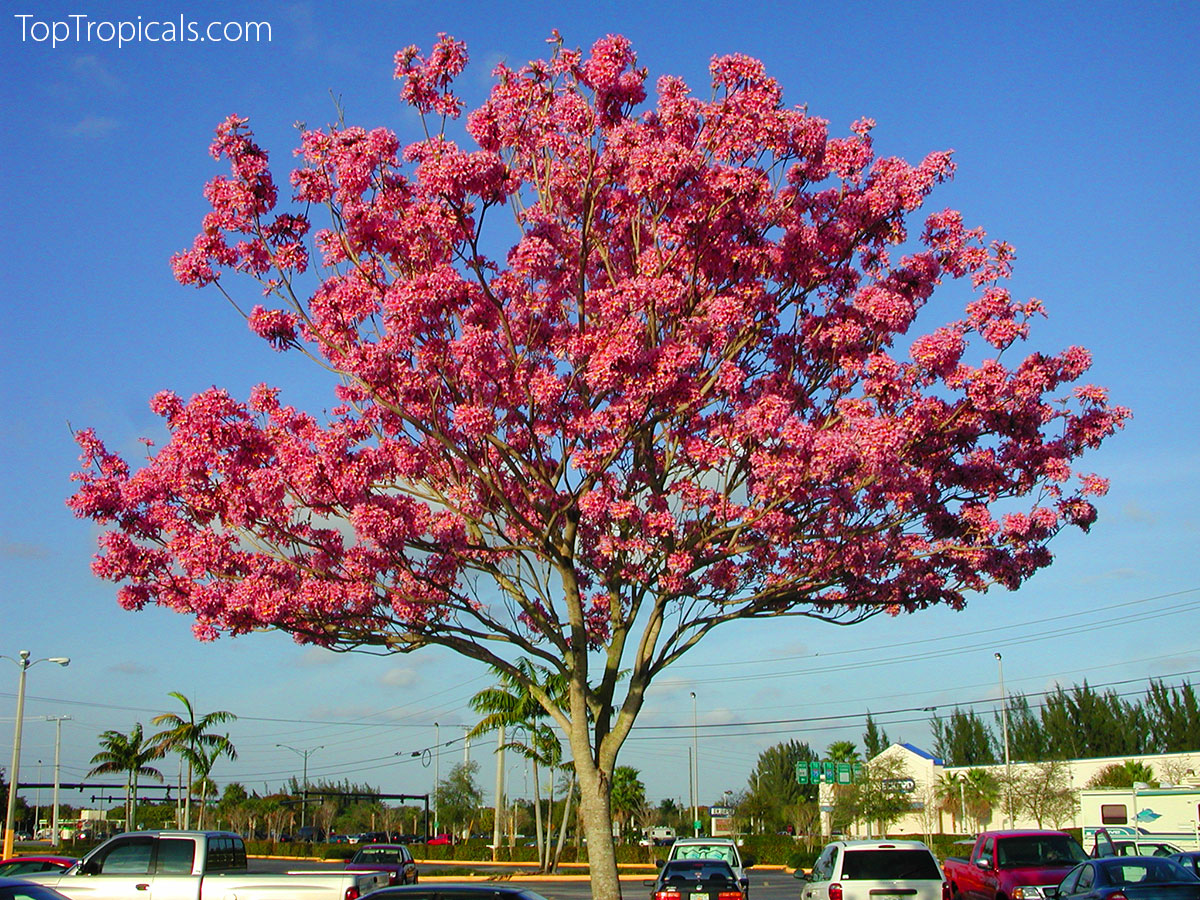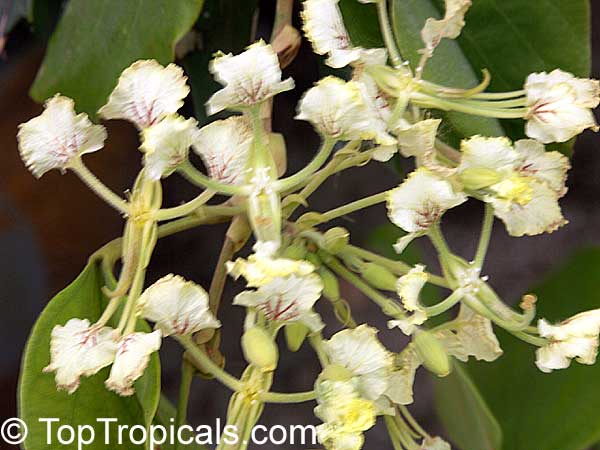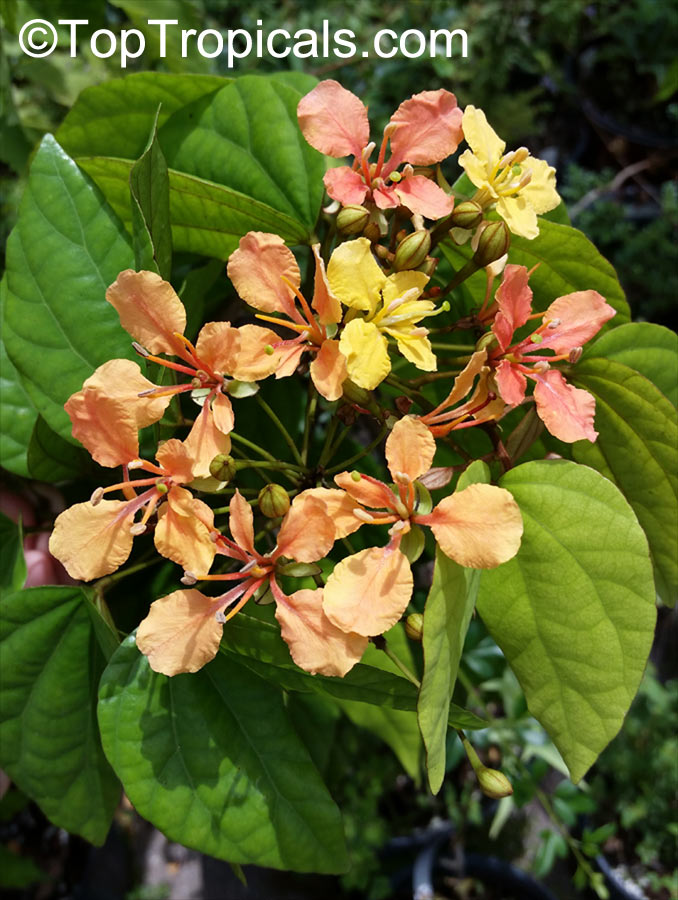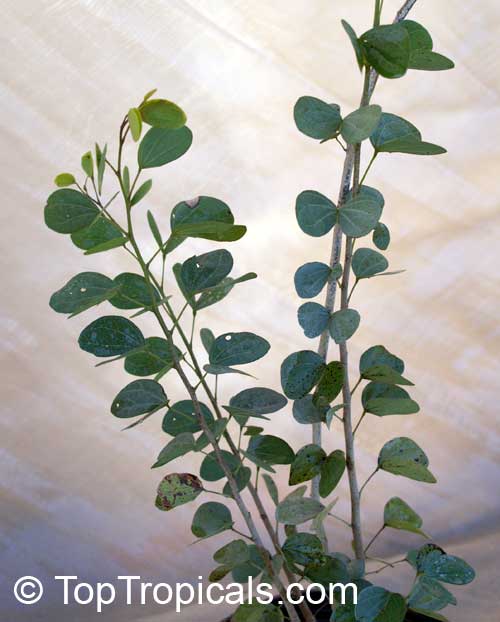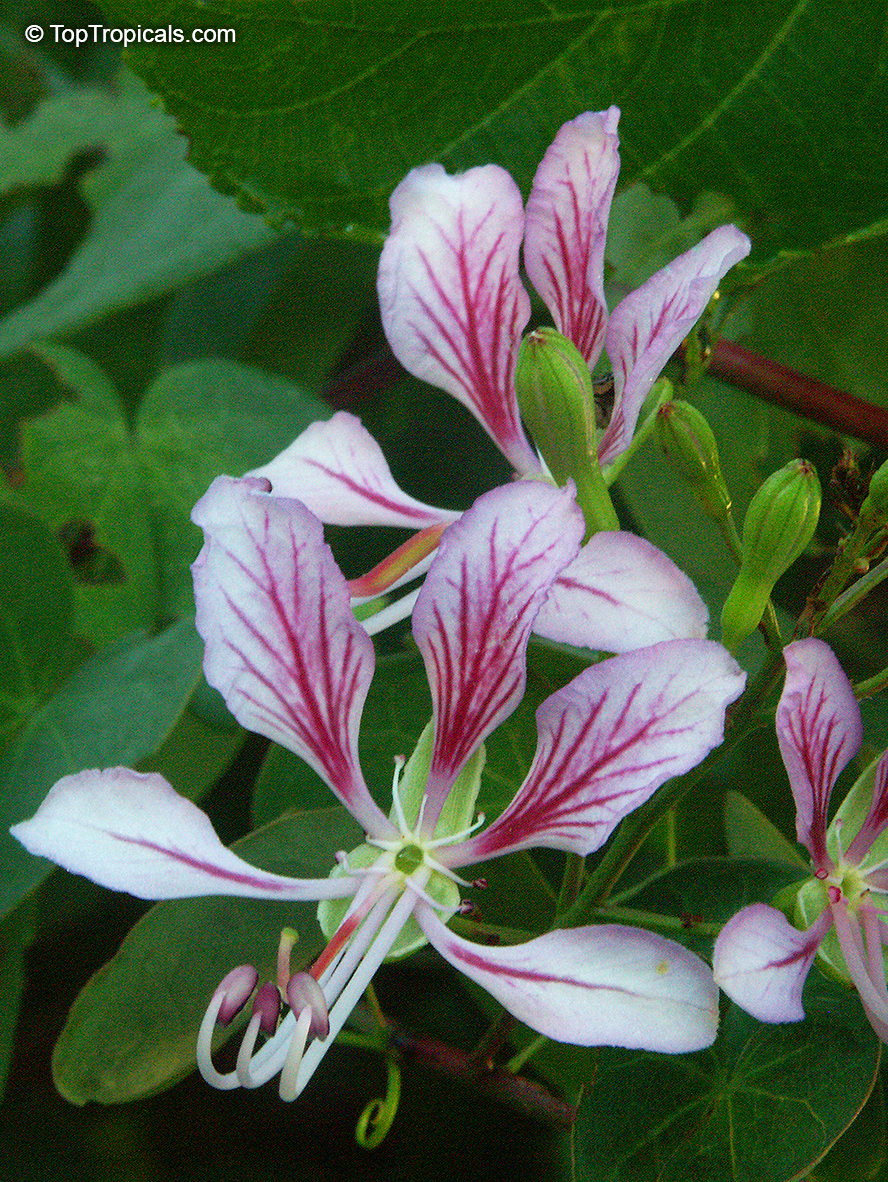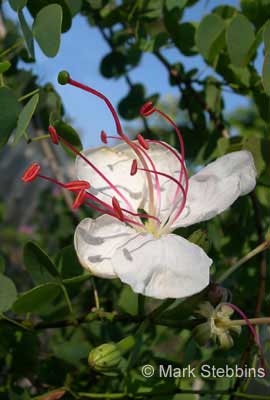






Last one
Date: 13 Aug 2025
🌸 Orchid Tree - Bauhinia: Winter Blooms & Year-Round Beauty
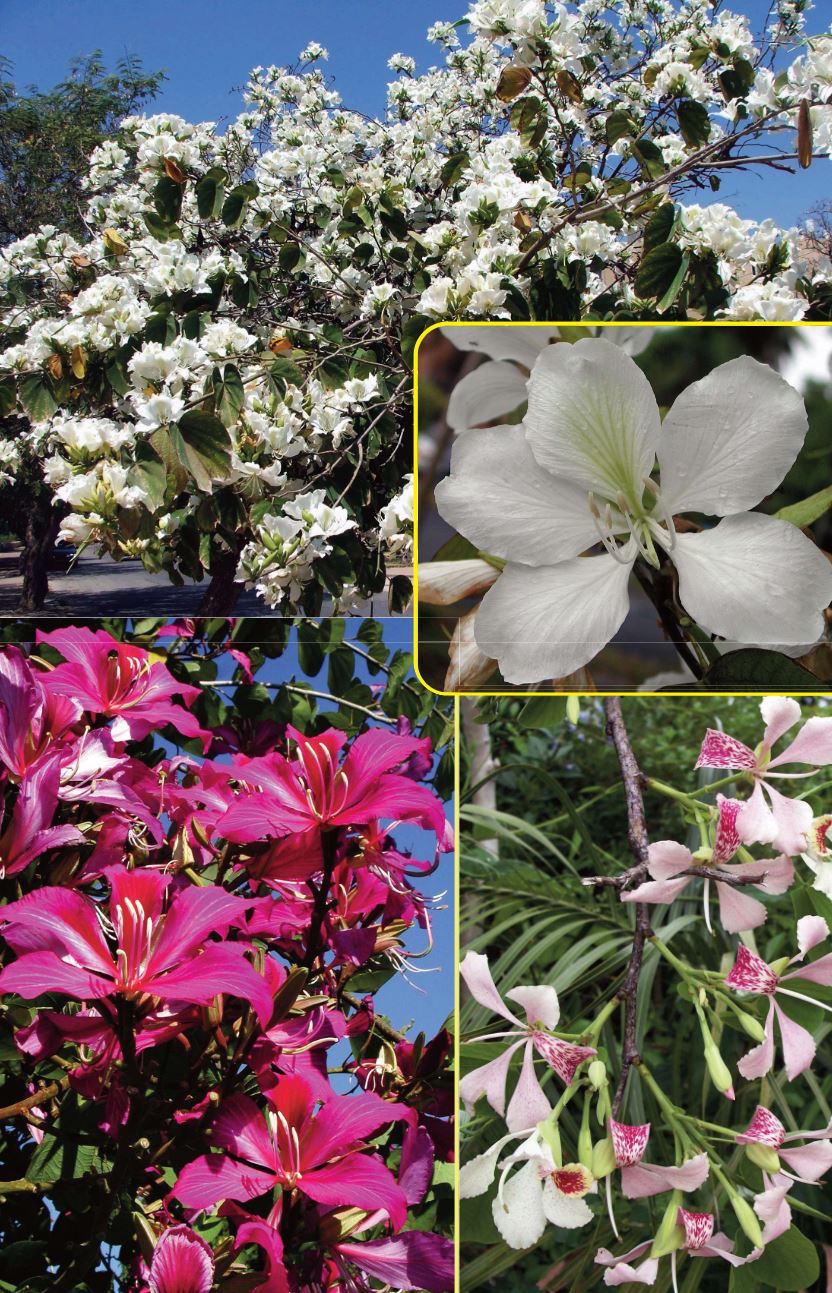
Sometimes a plant stops you midwalk. Flowers so bright they almost glow, leaves shaped like butterflies — that’s a Bauhinia, the Orchid Tree. These fast growers bring color when many gardens are quiet, with some blooming in the heart of winter.
🌟 Why Grow Bauhinia?
- Exotic blooms in colors from white to deep magenta
- Distinctive leaves — nature’s own butterfly design
- Many varieties flower in the cooler season
- Fast growth, easy shaping, more blooms after pruning
- Varieties for large yards, small gardens, and sunny patios
- Tolerant of heat, drought, and poor soils
 Bauhinia Care Tips
Bauhinia Care Tips
🌞 Outdoor
Full sun for best flowering, well-draining soil, deep watering once established. Light pruning after bloom keeps shape and encourages more flowers. Protect young plants from frost. During the growing season (Spring - Fall), apply a balanced fertilizer - like top-dress slow release fertilizer or controlled-release Green Magic. Liquid fertilizer Sunshine Boosters Megaflor can be used year around - to promote vigorous growth and abundant blooms.
🏡 Indoor / Patio
Bright sun (south window or outdoors in warm months), large pot with drainage, even moisture during growth, and a bloom-booster feed in season. Feed regularly with a balanced fertilizer controlled-release Green Magic. Liquid fertilizer Sunshine Boosters Megaflor can be used year around - to promote vigorous growth and abundant blooms. Bring indoors before frost.
🍂 Seasonal Note – Bauhinias are Deciduous
Bauhinias drop their leaves in winter — even in warm climates. This is normal and part of their rest cycle. Bare branches in the cool season will leaf out again in spring, often just as flowers begin.
📝 Quick choice guide
- Winter flowers: Bauhinia alba, Bauhinia blakeana, Bauhinia variegata
- Small space: Bauhinia acuminata, Bauhinia madagascariensis
- Vine option: Bauhinia galpinii for long warm-season color
Date: 22 Oct 2025
💞 Cassia or Bauhinia?
Looking for a small tree that blooms like fireworks but still fits on your patio? We hear this question all the time at Top Tropicals: Cassia or Bauhinia? Both are tropical showstoppers, but they shine in very different ways.
🌞 Cassias: Sunshine Fireworks
Cassia trees are some of the most rewarding tropical bloomers you can grow. Fast-growing, free-flowering, and surprisingly cold-tolerant, they thrive in full sun and summer heat. Their bright clusters come in shades of yellow, orange, pink, red, and even multicolor blends. The famous Rainbow Cassias show swirls of coral, gold, and rose on the same tree, creating a living fireworks display.
For gardeners in warm regions, these trees become spectacular focal points in the landscape. In containers, compact yellow forms like Cassia didymobotrya (Popcorn Cassia) and Senna alata (Empress Candles) stay manageable and bloom freely through summer.
Cassias can also be grown in pots with pruning and patience. Once mature, they reward you with breathtaking color that turns any patio or pool deck into a tropical show. Most showy cassias (numbers correspond to the photos in the collage above):
- Cassia bicapsularis (Butterfly Bush) - is a fast-growing, low-maintenance shrub covered in bright yellow, butterfly-like blooms from fall through winter.
- Cassia x natalensis (Rainbow Cassia)
- Cassia grandis (Red cassia) - a medium size tree having profuse blooms of dark pink to crimson flowers throughout the Spring.
- Cassia didymobotrya (Popcorn Cassia), small tree producing golden-yellow flowers with a distinct scent of peanut butter that open from brown buds in late summer and autumn. Similar to Senna alata (Empress Candles)
- Cassia roxburghii (Ceylon Senna) - graceful tree with spreading, drooping branches appearing to be overweighed by its wealth of clustering red blossoms.
- Cassia x nodosa (Pink Shower) - is a spectacular medium-sized, fast-growing tree with cascading clusters of fragrant pink-and-white appleblossom blooms in spring and summer.
- Cassia fistula (Golden Shower) - to many tropical gardeners, the most beautiful of cassias with masses of bright gold flower clusters appear on almost every branch.
- Cassia javanica (Apple Blossom) - dazzles with dense clusters of pink-to-white blossoms that change shades as they bloom, creating a spectacular display that lasts for months.
"Cassias love the heat and sunshine," says Tatiana Anderson, Top Tropicals Plant Expert. "They are perfect for anyone who wants big bursts of color and doesn’t mind giving them space and light to grow."
Bauhinia Magic: Orchid-Like Blooms in a Compact Size
Bauhinia orchid trees: top left – Bauhinia acuminata (Dwarf White Orchid Tree), middle left – Bauhinia blakeana (Hong Kong Orchid Tree), bottom left – Bauhinia monandra (Napoleon’s Plume Orchid Tree), top right – Bauhinia madagascariensis (Red Dwarf Orchid Tree), and bottom right – Bauhinia tomentosa (Yellow Orchid Tree)
Bauhinia trees known as Orchid Trees, bring a touch of tropical luxury to any space. Their butterfly-shaped leaves and orchid-like blossoms appear in shades of red, pink, purple, white, and yellow, often lasting up to ten months a year. Bauhinias are ideal for gardeners who want nonstop color in a manageable size. Most species grow well in large pots and bloom young, often within the first season.
The following compact varieties stay neat and flower almost continuously in warm weather:
- Bauhinia madagascariensis (Red Butterfly Orchid Tree). Blooms from winter through fall, up to 10 months a year. The most cold-hardy of all.
- Bauhinia blakeana (Hong Kong Orchid Tree). A large tree in the ground, but compact in pots if trimmed. Grafted trees flower right away. Winter bloomer, cold hardy to light frost.
- Bauhinia tomentosa (Yellow Orchid Tree). Flowers from Winter through Summer, cold hardy to light frost.
- Bauhinia acuminata (Dwarf White Orchid Tree). Blooms from summer through winter. Less cold hardy.
- Bauhinia monandra (Napoleon's Plume Orchid Tree). Almost everblooming with the longest flowering period. Less cold hardy.
The Hong Kong Orchid Tree is especially prized because it is sterile and produces no messy seed pods, keeping patios clean. Grafted Buhinia blakeana trees begin blooming while still small, making them perfect for containers or tight spaces.
"Bauhinias are generous bloomers," Tatiana explains. "They respond beautifully to regular feeding and full sun. If nights turn too cold, just move the pot to a sunny porch - they’ll keep their tropical charm most of the year."
Give them full sun, regular fertilizer, and a well-drained mix such as Sunshine Abundance, and they will reward you with months of vivid blooms. When nights turn too cold, simply move the pot to a sunny porch or bright window. Bauhinias adjust beautifully and keep their tropical grace year after year.
🎥 Watch Short Videos:
💲 Special Offer – 20% off Cassias and Bauhinias!
Get 20% OFF Cassias and Bauhinias with code
RAINBOW2025
Min order $100. Excluding S/H, valid online only, cannot be combined with other offers.
Hurry, offer expires October 30, 2025!
Date: 22 Oct 2025
 Detailed Cassia and Bauhinia Care Guide
Detailed Cassia and Bauhinia Care Guide
Outdoor Cassia and Bauhinia Care
- Light: Both Cassia and Bauhinia need at least 6 hours of direct sunlight daily. Cassias handle intense heat; Bauhinias can take light afternoon shade.
- Soil: Use loose, fast-draining soil. Mix equal parts garden soil, coarse sand, and compost.
- Watering: Keep evenly moist but never soggy. Cassias tolerate dry spells once established; Bauhinias prefer steady moisture. Water when the top inch feels dry.
- Feeding: For profuse flowering, feed with liquid Sunshine Boosters Megaflor that is safe to use with every watering, year around. You may also apply Green Magic controlled release fertilizer every 6 months. Bauhinias and Cassias respond quickly to feeding.
- Pruning: After flowering, prune lightly to shape and remove dead tips. Cassias can be trimmed to shrub form; Bauhinias stay bushy with pinching.
- Mulch: Add a 2-inch mulch layer around the base to conserve moisture and prevent weeds, but keep mulch off the trunk.
- Cold protection: Most Cassias handle brief frost; some Bauhinias like B. acuminata and B. monandra must be sheltered below freezing. For cold nights, cover with frost cloth or move containers into shelter.
- Dormancy: Outside of tropics, most Bauhinias drop leaves in winter for a short period of time, right before flowering and are called "semi-deciduous". Cassias stay evergreen.
Indoor or Porch Care (cool-climate growers)
- Container: Choose a sturdy pot with several drainage holes, one size larger than the root ball. Unglazed clay or thick plastic pots work best for heat regulation. Use a light, well-drained mix such as professional soilless mix Abundance. Both Cassias and Bauhinias dislike soggy roots. Add a thin layer of coarse gravel at the bottom to improve drainage. Repot every 1–2 years in spring
- Light: Brightest spot possible - south-facing window or heated sunroom. Supplement with a grow light if sunlight is weak.
- Temperature: Keep potted trees in warm environment for best results. The optimum temperature for Cassias and Bauhinias is between 60–85 F, although many species can tolerate cooler temperatures. Avoid cold drafts and sudden drops.
- Humidity: Average indoor humidity is fine; occasional misting keeps foliage glossy.
- Watering: Water sparingly in winter when growth slows; allow the top inch to dry between waterings. Do not let roots sit in water.
- Fertilizing: Feed with Sunshine Boosters Megaflor that is safe to use with every watering, year around, to maintain flowering indoors. You may also apply Green Magic controlled release fertilizer every 6 months.
- Pest watch: Check undersides of leaves for aphids or whitefly. A light spray of neem oil or insecticidal soap clears them fast.
"Whether you crave golden summer fireworks or soft orchid blooms that last nearly all year, both Cassia and Bauhinia bring pure joy to the garden. 💖 Bring color that never quits."
Did you know: Fall is the best planting season — roots grow faster and you’ll have flowers by spring!
Date: 7 Oct 2025
⭐ The Winter Stars: 8 Flowering Trees That Steal the Show
8 Best Flowering Trees That Bloom in Winter: Royal Poinciana with red-orange canopy, Dwarf Pink Tabebuia, Dwarf Golden Tabebuia, Pink Butterfly Orchid Tree, Golden Rain Tree, Weeping Red Bottlebrush, Hong Kong Orchid Tree, and Jacaranda with purple flowers.
Royal Poinciana (Delonix regia)
The diva of tropical trees. Huge red-orange flowers blanket the branches
from late winter through summer. If you’ve ever seen one in full
bloom, you know — it stops traffic.
Best in large yards or open spaces, but young ones do great in big pots for
a few years.
🛒 Shop
Tatiana: “If you want a tree that makes
people
say ‘wow,’ this is it.”
Tabebuia chrysotricha – Dwarf Golden Tabebuia
Small tree, big drama. It turns solid gold just before new leaves appear. Blooms while completely bare — a stunning contrast of yellow on brown wood. Perfect for patios, courtyards, and containers. Handles cool nights down to the mid-20s F. Bright, cheerful, and forgiving — the kind of tree that always looks like it’s celebrating. 🛒 Shop
Tabebuia impetiginosa – Dwarf Pink Tabebuia (Pau D’Arco)
The Florida “cherry blossom.” Pink-lavender flowers smother the branches each winter, often before any leaves return. Thrives in sandy soil, tolerates drought, and grows beautifully in large planters or pots indoors near a sunny window. Ideal for seasonal residents or anyone who wants color when everything else is asleep. 🛒 Shop
Jacaranda mimosifolia
If color had music, this would be jazz. Soft, fern-like leaves and cascades of violet-blue trumpet flowers — airy, elegant, unforgettable. Outdoors, it makes a graceful shade tree; in containers, it stays compact with regular pruning. Jacarandas reward patience — they bloom bigger each year. 🛒 Shop
Koelreuteria paniculata – Golden Rain Tree
A favorite for its surprises — golden blooms in summer, pink paper lantern pods in fall, and bronze leaves before rest. Fast-growing, tough, and easy. Loves full sun and moderate water. Great for open lawns or patio tubs. The kind of tree that gives you something new to look at every month. 🛒 Shop
Callistemon citrinus – Bottlebrush Tree
The hummingbird magnet.
Bright red, brush-shaped flowers bloom several times a year —
sometimes even in cool weather.
The dwarf form, ‘Little John,’ stays about 4 feet tall, perfect
for pots or small borders.
Trim lightly after flowering to keep it compact and colorful. 🛒
Shop
Tatiana: “If you’ve never grown a
tropical tree before — start here. It’s the friendliest
one.”
Bauhinia variegata – Pink Butterfly Tree
Graceful, fragrant, and forgiving. Its pink-lavender orchid-like flowers open from late winter through spring, filling the garden with color and pollinators. It’s fast-growing, drought-tolerant, and excellent for both ground and pots. Even the buds are edible — a fun bonus for adventurous gardeners. 🛒 Shop
Bauhinia blakeana – Hong Kong Orchid Tree
The queen of them all.
Huge magenta-purple blooms that last for months, from fall through spring.
Fragrant, clean (no messy seed pods), and perfect for patios or large
decorative containers.
Give it sun, a little water, and it will reward you with bloom after bloom.
🛒 Shop
Tatiana: “It’s the one tree that never lets winter
win.”
A note on grafted Hong Kong Orchid Trees: Most Hong Kong Orchid Trees are grafted, and that’s actually a big advantage. Because they don’t grow from seed, grafted plants mature faster and begin blooming while still small — sometimes within the first year. That makes them perfect for patio pots or small gardens where space is limited.
Bringing the Tropics Home
Whether your garden faces the Gulf or your window faces the snow, these trees let you live in color year-round. Plant them outdoors in warm zones or grow them in pots indoors — they adapt, they bloom, they brighten every corner.
Gardening isn’t about waiting for spring — it’s about finding joy in every season. And when a tree blooms in January, that joy feels twice as sweet.
🛒 Shop Winter Flowering Plants
✍️ Winter Bloomer Q&A
Q: Can these trees really bloom indoors?
Yes! Smaller species like Bottlebrush ‘Little John,’ Dwarf Tabebuias, and many Bauhinias bloom beautifully in pots with bright light or grow lamps.
Q: Do they lose their leaves in winter?
Some, like Tabebuias and Jacarandas, drop leaves right before blooming — it’s normal and part of their charm. Others, like Bottlebrush, stay evergreen.
Q: What fertilizer works best?
We use Sunshine Boosters — gentle, balanced, and perfect for tropicals. Feed every 2–3 weeks during active growth.
Q: How do I know when to water?
Touch the soil! If it’s dry an inch or two down, water deeply. Overwatering is the main mistake with tropicals.
Q: Can they handle frost?
A quick dip into the upper 20s F is fine for most mature trees. Cover young ones or move containers under shelter if colder.
Q: Which are best for beginners?
Start with Bottlebrush ‘Little John’ or Golden Tabebuia — compact, colorful, and nearly foolproof.
Q: When will they bloom?
Usually within few years if they get enough sun and warmth. Grafted plants blooms much sooner
Q: Which of these trees are best for pot growing?
For patios, balconies, or indoor sunrooms, choose the compact or grafted types:
- Tabebuia chrysotricha, Dwarf Golden Tabebuia, bright and easy.
- Tabebuia impetiginosa, Dwarf Pink Tabebuia, hardy and long-blooming.
- Callistemon ‘Little John’ – stays neat and flowers all year.
- Grafted Bauhinia blakeana – blooms while young, perfect for pots.
🎥 Watch videos of Dwarf trees in bloom:
Bauhinia acuminata
Family:Fabaceae
Subfamily:Caesalpinioideae
Dwarf White Orchid Tree, White Bauhinia, Kaa-long, Snowy Orchid
Semi-deciduous large shrub or small tree with white butterfly-like flowers, everblooming (Flower season: Spring through fall). Drought tolerant. Bauhinia acuminata is very sensitive to cold wind. Pea shaped pod with 4 to 6 seeds. See article about this plant.
See detailed plant profile in new window: https://toptropicals.com/catalog/uid/bauhinia_acuminata.htmBauhinia aureifolia
Family:Fabaceae
Subfamily:Caesalpinioideae
Gold Leaf Bauhinia, Bai Mai Si Thong
B. aureifolia, which was discovered in Thailand in 1983: a beautiful climber that needs full light and good humidity. The cultivated plants range from pure white to dark purple and pink, while the wild ones have often white petals with pinkish patches. This plant prefers dry to intermediate sites in any altitude range from sea level. Delicately fragrant in the evening, blooms May to November at 3-5
... more
Bauhinia bassacensis, Phanera bassacensis
Family:Fabaceae
Subfamily:Caesalpinioideae
Bauhinia
Unusual vining bauhinia with large leaves and white large flowers. Tropical plant, very cold sensitive. Needs support. The plant grows as a large woody vine.
See detailed plant profile in new window: https://toptropicals.com/catalog/uid/bauhinia_bassacensis.htmBauhinia bidentata, Phanera bidentata
Family:Fabaceae
Subfamily:Caesalpinioideae
Orange Bauhinia, Orange Orchid Vine
Bauhinia bidentata, native to Thailand, is a vigorous woody vine, or creeper, with attractive bright orange flowers and large heart-shaped foliage. The yellow, orange and crimson blossoms of this plant attract butterflies and hummingbirds.
Due to its tropical origins, Bauhinia bidentata thrives in full sun and semi-shade, although young plants should be protected during cold spells. Restrict moderate watering during winter and late autumn. This plant requires moist, well-drained soils.
In warmer climates, Bauhinia bidentata can be grown in the garden. In USDA Zone 10-11 it can reach 30-50 ft high. In colder climates, you can grow Orange Bauhinia in a pot, using a rich, fast-draining planting mix. It is important to keep the container in an area that provides shelter from strong winds, and also to make sure that planting mix is kept moist but not saturated.
Overall, Bauhinia bidentata is an excellent vine to bring a tropical feel to any outdoor space. It is a low maintenance plant with unique orange-colored blooms that you can enjoy all year-round.
See detailed plant profile in new window: https://toptropicals.com/catalog/uid/bauhinia_bidentata.htm
Bauhinia bowkeri
Family:Fabaceae
Subfamily:Caesalpinioideae
Kei White Bauhinia, Bowker's Bauhinia, Keibeesklou
Bauhinia bowkeri is widely cultivated due to its attractive foliage and white and off-white flowers which are abundant during warmer weather and attracts butterflies, hummingbirds and other pollinators. It is hardy in the warmer regions of USDA hardiness Zones 9-11 and can be grown as an evergreen in tropical, subtropical and warm temperate climates. It does not tolerate cold, and in areas where the temperature drops below freezing, it should be grown in containers and kept in an area that receives full sun and moderate water during the growing season.
When grown in a pot, Bauhinia bowkeri should be placed in an area that receives full sun. The soil should be kept slightly moist and well-draining, to prevent root rot. During frost and cold temperatures, it should be moved into a warm, sheltered location and covered with a thick blanket to insulate it. The mature plant can tolerate temperatures in the low 30s F for a short time. Also, being grown in a container also helps insulate the roots and protect them from freezing temperatures. It should not receive too much water during cold weather, so as to minimize root damage.
With its large, evergreen shrub and attractive foliage, Bauhinia bowkeri is an excellent addition to tropical, subtropical and warm temperate gardens. It is a low maintenance plant and offers year round color and beauty. The white and off-white flowers attract a wide range of pollinators, from butterflies to hummingbirds, and are a remarkable sight.Ultimately, Bauhinia bowkeri is a low maintenance yet beautiful addition to any garden in a warm climate.
See detailed plant profile in new window: https://toptropicals.com/catalog/uid/bauhinia_bowkeri.htm
Bauhinia corymbosa, Phanera corymbosa
Family:Fabaceae
Subfamily:Caesalpinioideae
Vining bauhinia, Climbing Bauhinia, Camel's foot
Pretty, evergreen vine climbing by tendrils w/ dainty, bilobed leaves and clusters of lavender-pink, orchid-like flowers over long spring-fall season, displayed for a long period. It's a delicate, small-leaved but vigorous viner, adaptable to sun or light shade, and tolerates drought and light frost (zone 9). It has the characteristic Bauhinia butterfly leaves. A fine texture vine.
See detailed plant profile in new window: https://toptropicals.com/catalog/uid/bauhinia_corymbosa.htmBauhinia hookeri, Lysiphyllum hookerii
Family:Fabaceae
Subfamily:Caesalpinioideae
Mountain Ebony, Pegunny, White bauhinia
Medium tree with large spreading crown and white flowers, edged in pink and deep pink or red stamens. Bifid leaves are small. Prefers full sun places. Drought tolerant once established. Slow growing when small. Seeds need to soak in several changes of very warm water before planting. Germination takes 14 to 45 days at 85oF (30oC). Makes a good container specimen or bonsai. Due to its small leaves,
... more
Detailed plant profiles: 36 plants found
